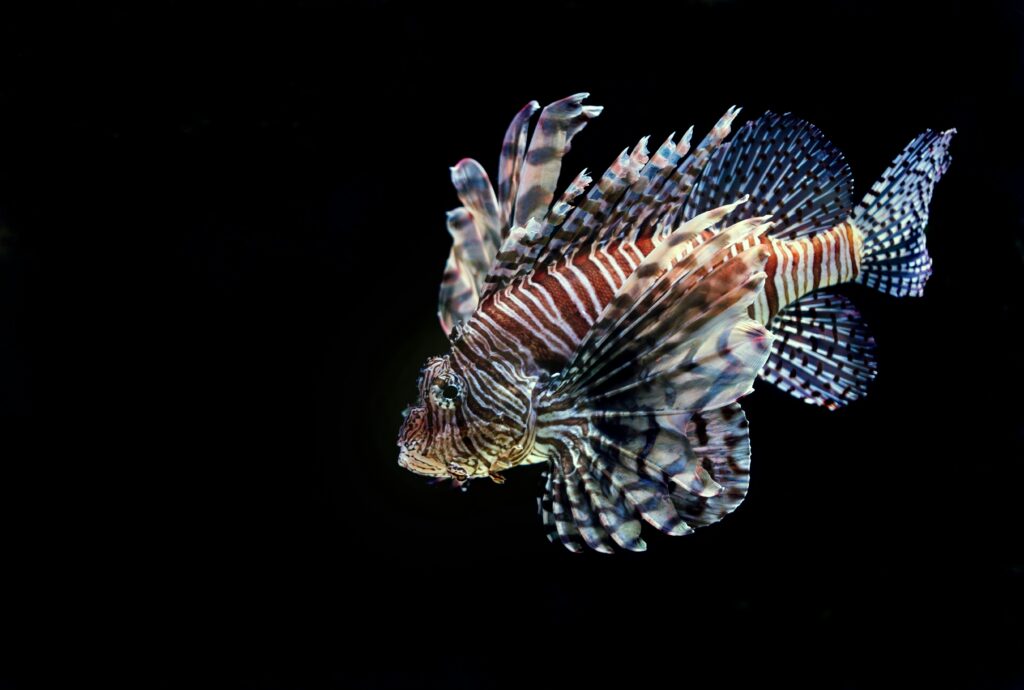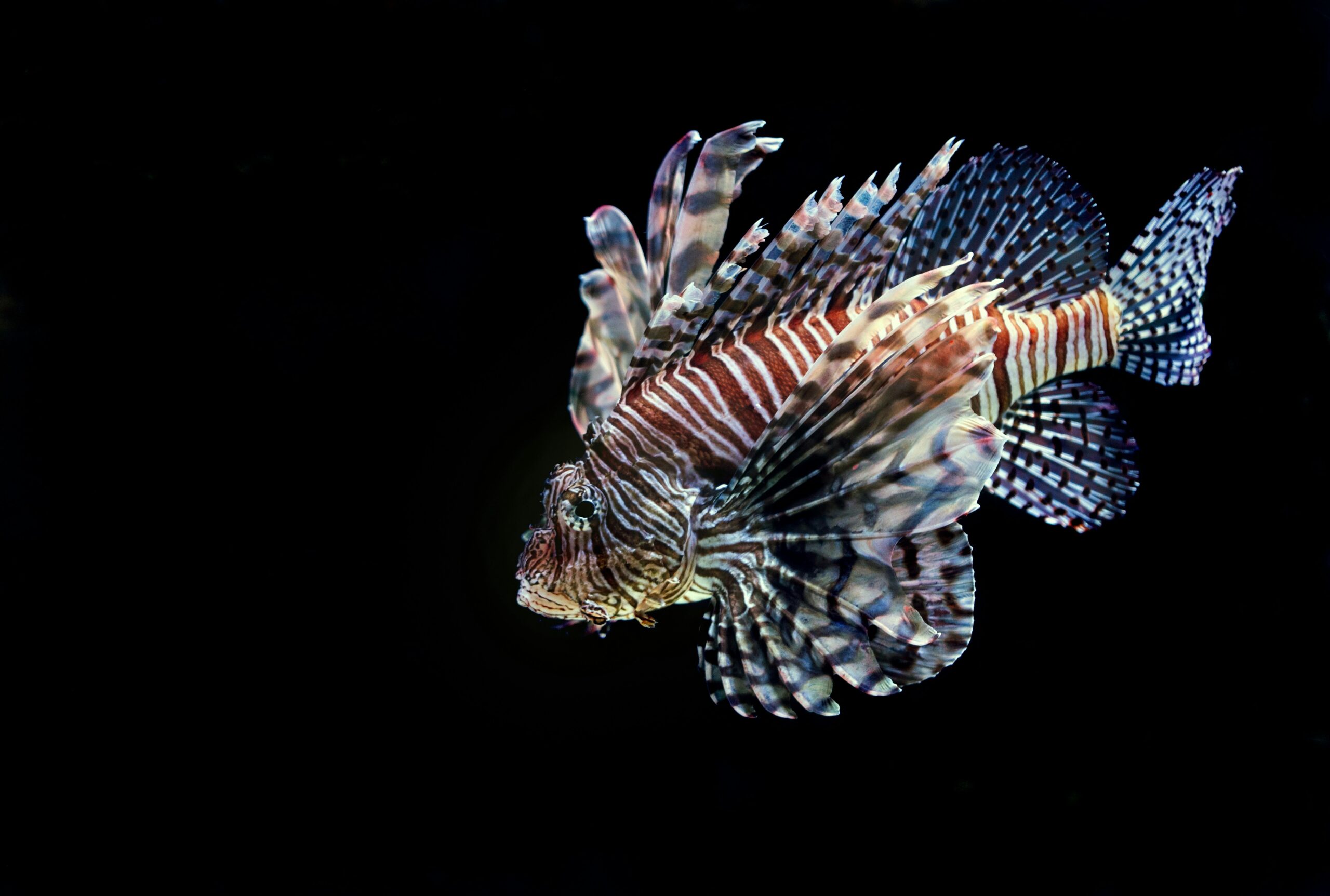Lionfish are native to the Indo-Pacific region as well as the Red Sea. As of 2025, they are also prevalent along reefs in the Atlantic, causing intense harm as they have an intense diet and sixteen venomous spines along thieir body. Reef sharks even dare to attack them. The question is, how did these fish get here from across the world? No ocean currents could bring them that far, especially at a number that can cause them to reproduce at the rate we see today.
In the late 80s and early 90s, the aquarium industry saw a large bloom. Advancements in equipment and the status of having a saltwater tank with tropical fish caused many people to buy in. Many people would stock saltwater aquariums, uneducated about the fish they were putting in their tanks. The lionfish became a popular aquarium addition due to their striking red stripes and predator status. Sadly, inexperienced aquarists did not realize what they were getting themselves into as lionfish grow quickly, require expensive food, and can be very aggressive towards other fish. When many of those people realized they could no longer manage them, they released them off the coast of Florida. These fish, with no natural predators in the Atlantic, thrived. Lionfish reproduce at an alarming rate, eating reef fish, affecting keystone species populations. This causes a negative imbalance in the coral reef community.
Genetic studies show that these fish all came from the same family, a very small population of under a dozen, proving this theory. In the past 15 years, their population in the Atlantic has swelled. According to NOAA, a single lionfish residing on a coral reef can reduce the recruitment of native reef fish by 79 percent. This is obviously a huge problem for reef conservation and the protection of native fish species. There was a lionfish symposium at the 2014 meeting of the Gulf and Caribbean Fisheries Institute in Barbados, hosted by Dr. James Morris. There, they discussed weaknesses and made plans to help combat this issue. Local control is noticed to be very effective and is worth the effort. Non-government affiliated organizations and individuals have been spearing and helping to combat the invasion in recent years. Efforts to get sharks to eat these fish are also being made. Divers spear the lionfish and swim them on the spear towards reef sharks in hopes they start seeing the fish as food to help battle their invasive population in the Atlantic.(click here) Aquarium stores are also stepping forward in further educating hobbyists on the notion that releases to the wild can be highly negative and are frowned upon.
Whether in a pond or the ocean, the release of aquarium fish into non-native habitats can have drastic consequences on the Earth’s ecosystem.

Lionfish at night, Photo by David Clode on Unsplash
